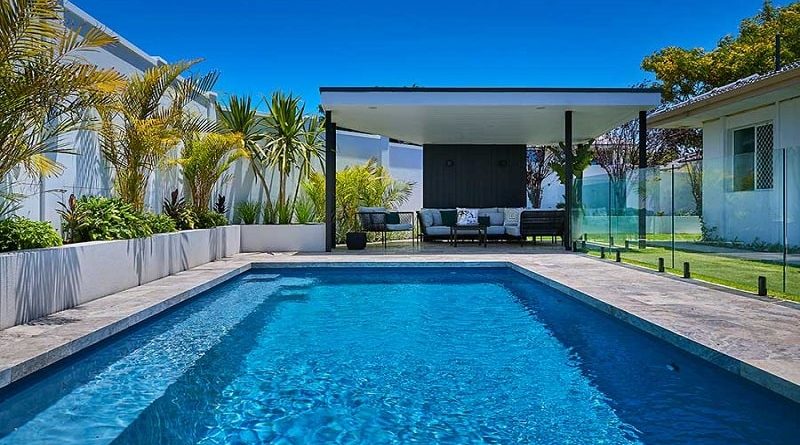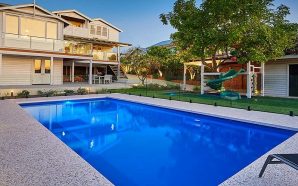Those of you who are fortunate enough to own a swimming pool already have an inkling of how strenuous pool maintenance can be. It’s not always simple to keep a swimming pool squeaky clean. The key to a sparkling pool is to always be on top of the job, and never slack. Consistency in cleaning is the way forward. Nonetheless, with the busy lives we lead (though somewhat “busy” at home with the pandemic), pools may fall prey to unhealthy conditions like algae, green water, damaged filters, etc. Nobody wants a dirty pool filled with debris and grime. If you don’t own a pool yet, don’t let the thought of potential maintenance put you off choosing from some of the best Fibreglass Swimming Pools on the market. Let’s have a look at 7 pointers to help you in tending to your pool.
Pool Filters
Although you’ll find that fibreglass pools have self-cleaning mechanisms, and are easy to maintain due to a gel coating they have, filters are important. A pool’s filter is continuously working to remove dirt. Apart from dirt, filters handle grime, leaves, toys, and other kinds of impurities. In most cases, pool filters can be cleaned while they’re turned off. All you need to do is turn the cap, remove the basket, and empty it of any debris caught in it. Such a cleaning process is recommended once a week. The pool pipes, on the other hand, need good backwashing once a month. You can set your filter to the “backwash” mode and lift out your basket to give it a good scrub. After you do this, you have to switch on your pump and let it run till the water is clear.
It’s important to note that the filter needn’t run the whole day. In case it does, it can cause issues. Setting a timer to six hours every day will assure you of optimal filter operation. The filter will work efficiently in this manner.
Skimming and Scrubbing
Preventing algae formation should be your main concern in keeping your pool clean. Scrubbing the walls of your pool regularly will take care of algae and calcium build-up. This will save your pool from future damage. According to the material that your pool has been constructed from, you will have to use a corresponding brush. Concrete pools require a stiff-bristled brush. Choose a brush that is hard, as concrete can take vigorous cleansing. A brush with softer bristles should be used for vinyl and fibreglass pools.
If your pool is lined with tiles, be sure to see that there’s no damage. Smooth tiles can scratch easily, so a soft brush is great. Skimming leaves and debris off the top of your pool will truly ensure a neat and hygienic pool. This has to be a daily routine, using a net with a long handle. Dirt, leaves, and insects collect on the water’s surface every day.
Pool Vacuuming
Your pool needs a good vacuuming once a week. Regularly done, water will stay clean and clear of debris. Vacuuming will reduce daily dirt and keep your pool maintenance up-to-date. It also reduces the amount of chemicals you need to put in it to maintain hygiene.
Pool pH Levels
A pool’s pH levels represent the acidity of pool water. A pH scale shows levels in the range of 0 – 14.7. Level 7 indicates that the water is neutral. Above 7 means it’s basic. If your pool’s pH level decreases below 7, that means your pool’s water is acidic. These levels must be checked on a daily basis. Ideal pH levels in fibreglass pools should be anywhere between 7.2 – 7.6.
Level of Water
Water levels of any pool will fluctuate due to several reasons, like children jumping in, rain, and evaporation. Maintaining a level that is halfway up your skimmer mouth is a good rule of thumb for pool water level. If the level of water is too low, your pool pump may get damaged. In case you find that the level of water is lower than required, use a hose to take it to the ideal level. When the water reaches the correct level, you must check the chemicals in the water. Alterations in water levels can destabilize chemicals.
Pool Covers
Pool covers are a large part of pool maintenance. Homeowners find that they are efficient for a number of reasons. They keep debris like dirt, leaves, and insects out. They also aid in reducing chemical evaporation in pools. If you’re using a pool cover, a handy hint is to turn down your chlorinator. Sunlight reduces the amount of chlorine in your pool, and you save a lot by turning the chlorinator off.
Pool Shock
In busy pool seasons, giving your pool shocks once every few weeks is something you should do. How do you do this? By drastically changing the chlorine levels for a short period. This kills all the bacteria in your pool, mainly algae. Your pool will remain gleaming and clean. Always run your pool pump while giving your pool a shock, and let it circulate for a whole day. You shouldn’t swim in your pool until chlorine levels are normal. The amount of time this takes varies, but by general standards, waiting for 24 hours is good.
Tennis Balls – an Additional Hint
No, we aren’t talking about the Australian Open here! Experts and owners of fibreglass pools agree that tennis balls come in handy for pool maintenance. After people swim in a pool, specific oils are left behind, like suntan lotions, natural skin-secreting oils, and hair lotions. These leave the pool cloudy and unhygienic. Making you queasy? Have no fear, tossing a tennis ball into a pool helps to remove the grease from the pool’s water surface. The fibers of tennis balls are such that they quickly absorb any greasy residue.
It’s not hard to keep your pool sparkling clean through the year. It may seem daunting to start with, but it turns into an easy regimen. The whole idea is to stay with it and don’t stop. Once it becomes a regular part of overall home maintenance, you will reap its advantages.









